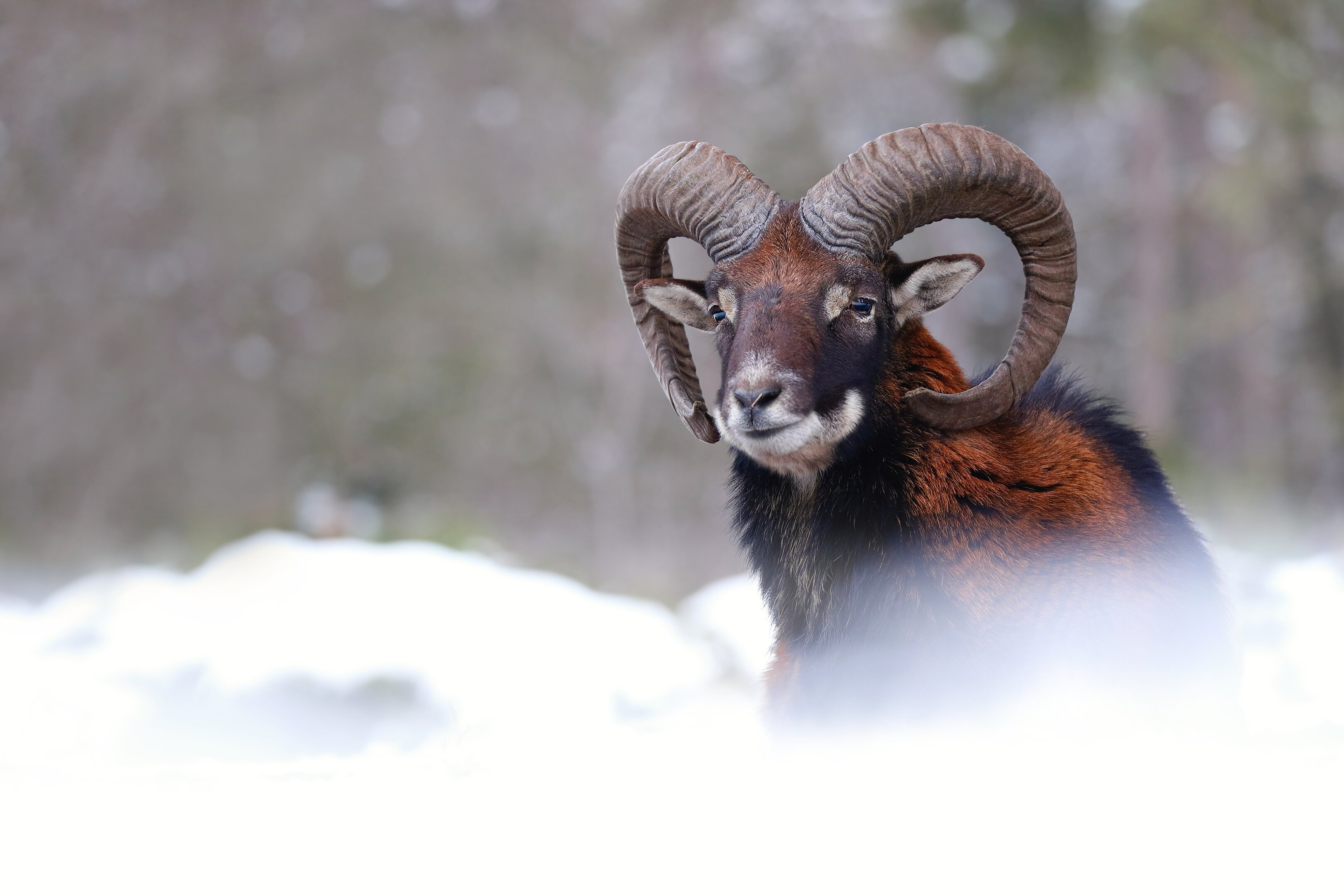
Hunts

Mouflon in winter
Winter hunting for mouflon typically takes place in areas where they go in search of food. During the winter months, the fur of these animals displays various shades, adding to the beauty of the hunting experience.
Mouflons have excellent vision and a keen sense of smell. They are very shy and alert, capable of agile leaps and swift running. In the terrain, a mouflon herd can be quite noisy, and when danger is detected, they emit a warning whistle, which sounds similar to a sneeze. Subsequently, the herd flees, but after running a short distance, they stop and sniff again for signs of danger.
Older mouflons are accustomed to grouping together and live in separate groups of 2 to 5 individuals.
Hunting period
December 1st - February 28th
Biology
Mouflons thrive best in rocky and stony terrain where they can effectively sharpen their constantly growing horns. They inhabit mixed and deciduous forests interspersed with open areas suitable for grazing. They are also found in coniferous forests but need to venture into fields for food. Mouflons are active during the day and enjoy basking in the sun on meadows and clearings.
Their diet composition varies with the seasons. In spring, they graze on budding vegetation, in summer, they favor the fleshy parts of plants, and they readily consume grains during the milky and mature stage. During autumn, they intensively gather seeds and fruits from various shrubs, trees, grasses, and herbs. In winter, they nibble on shrub and tree shoots, as well as the remnants of dried vegetation.
.jpg?locale=en)


.jpeg?locale=en)


.jpg?locale=en)